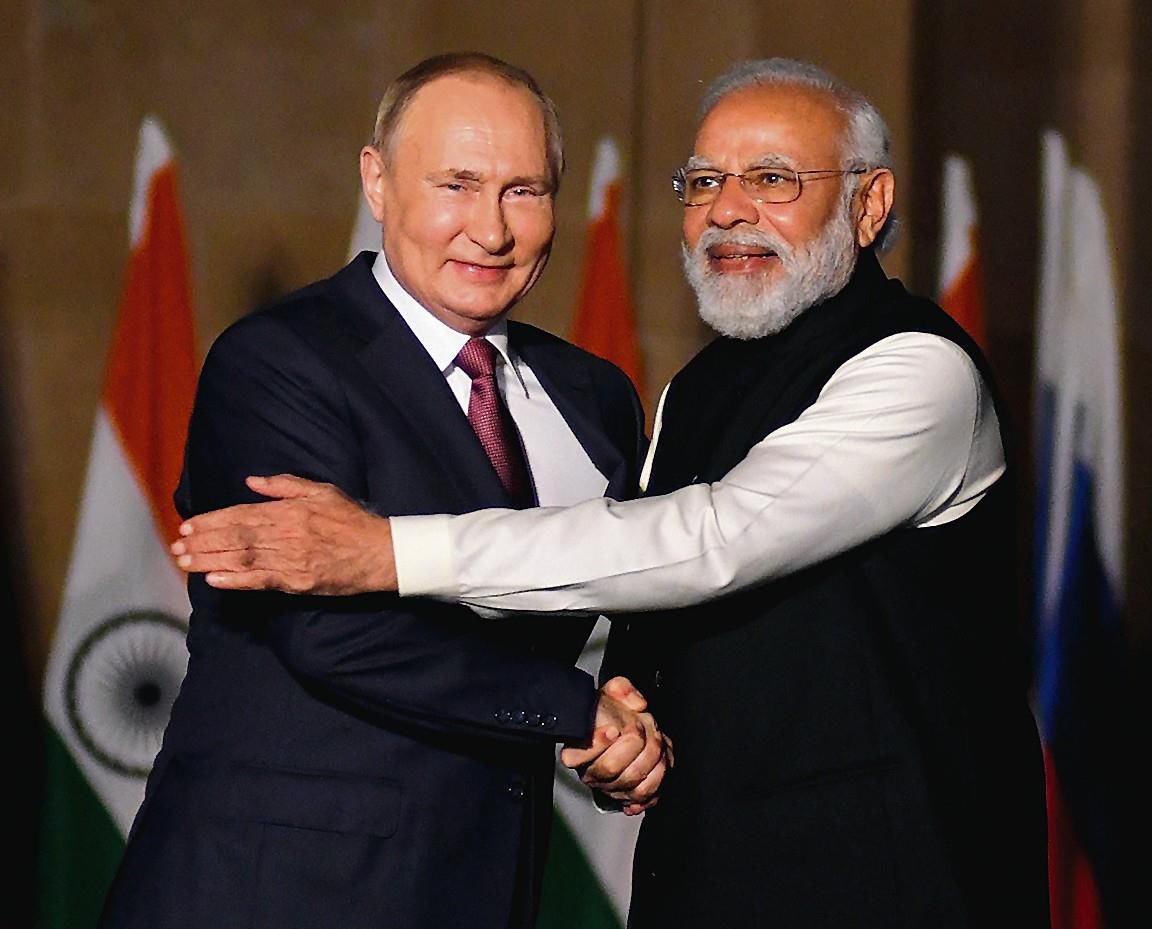The Tribune exclusive: Eyeing stronger ties, PM Modi to visit Moscow on July 8
Jyoti Malhotra
Moscow, June 24
Prime Minister Narendra Modi will undertake a quick day-long trip to Moscow on July 8, which is expected to underline the engagement between India and Russia, the historical partners who are also seeking new partnerships in the fast-changing world order.
Modi’s trip is significant, not just because it is a standalone visit — which means that it is not being clubbed with the BRICS summit that is expected to take place in Kazan in October — but also because it comes soon after he took charge of the government for the third term and after Russian President Vladimir Putin was re-elected for the fifth time in March.
Much has also changed in the bilateral relationship since Modi last came to Russia — he was in Vladivostok in 2019, but last visited Moscow in 2015.
For starters, the Russian invasion of Ukraine is more than two years old. But in the wake of that invasion, the sale of Russian discounted crude oil to price-sensitive India has been so significant that Russia has replaced Saudi Arabia as the largest source of imported crude in the world.
No matter that the US-led sanctions on Russian oil trade have been tightened. Oil sales to India have risen every month, according to commodity market analytics firm Kpler, with delivered volumes in March this year increasing by 6 per cent over February to 1.7 million barrel per day — a four-month high. Turned out that April was even better, as Indian refiners ignored Western sanctions against Russia’s state-owned oil shipping syndicate Sovcomflot — and bought 1.96 million barrel per day, the highest since July last year. The Russian import crossed 40 per cent of all imported crude into India.
Ironically, India processes a significant amount of this Russian crude and resells it to Europe at a profit — ironical because European refineries are banned from directly buying Russian oil since the Ukraine invasion.
And then there is the Indian dependence on Russian weapons and spares, which though decreasing over the years, is far too significant to give up — both because it is much cheaper than comparable weapon purchases in the West and because the Indian armed forces have been trained on them for decades.
No wonder, then, that India has over the last two years been walking a fine line on its Russia relationship — while it remains keenly aware that the US is closely watching how this relationship unfolds.
India has refused to criticise the Russian invasion of Ukraine, only saying in generic terms that all invasions and all wars are bad, and refused to sign on to the pro-Ukraine communique issued at the end of the recent summit in Switzerland.
Meanwhile, the ties between Russia and China are growing, a fact that never escapes the watchful eye of New Delhi. As Putin receives PM Modi at the Kremlin in early July, Delhi’s strategic interests will dominate, say observers.
Strategic significance
- Standalone visit assumes significance as it comes soon after Modi begins his third term as PM
- Amid Ukraine conflict, India has over last two years been walking a fine line on its ties with Russia
- Despite US sanctions, India’s dependence on Russian oil and weapons is too significant to give up
- India’s strategic interests will dominate the visit even as both nations seek new partnerships in fast-changing world order









